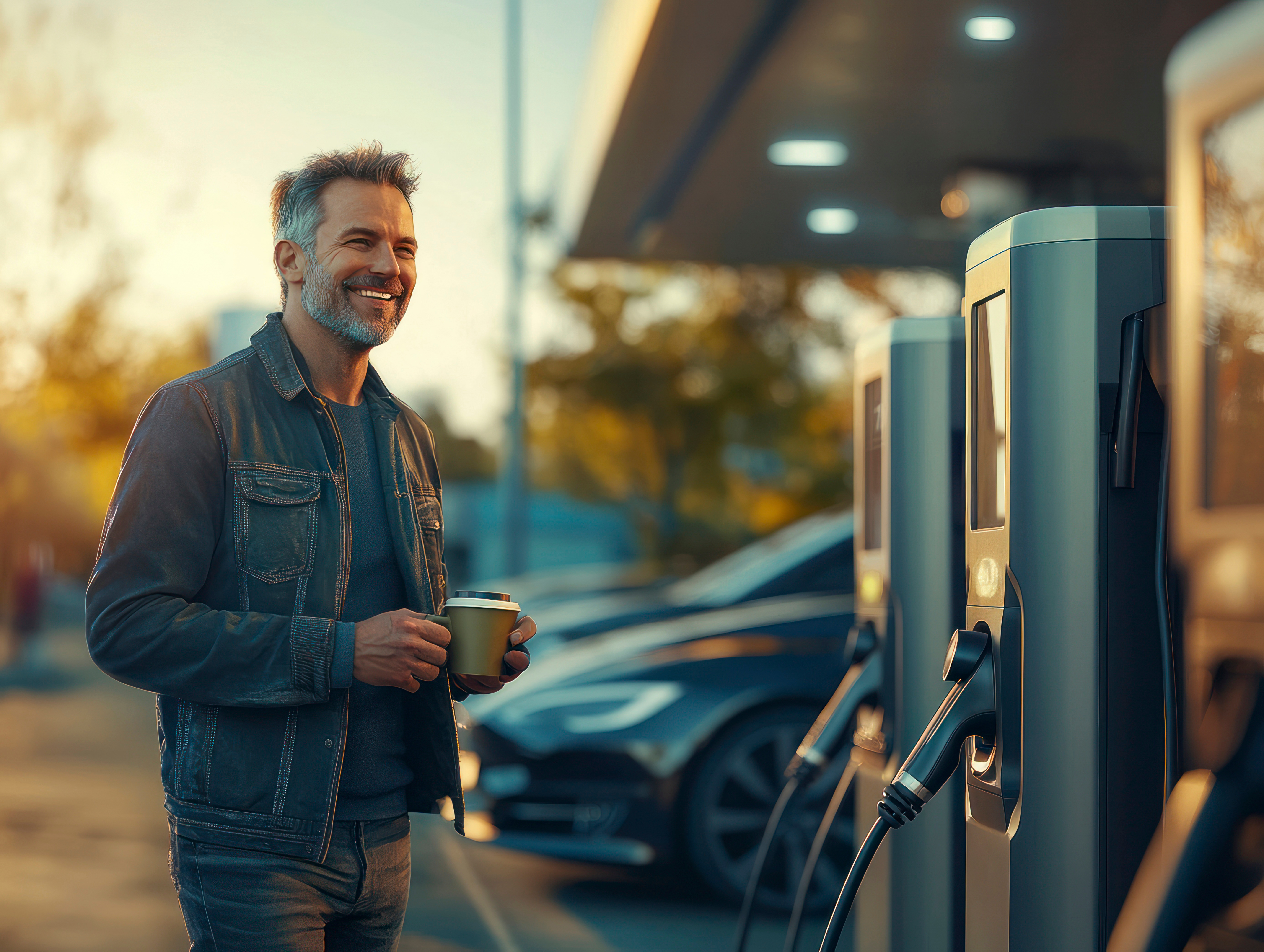- Newsroom
- Veröffentlicht am:
Strengthening customer loyalty in aftersales

Value-added services can enhance customer loyalty and boost the competitiveness of car manufacturers. (photo: Adobe Stock)
- 1,400 owners rate the attractiveness of value-added services in practice
- Car manufacturers and dealers face growing pressure to compensate for the medium-term decline in electric vehicle sales through additional and new revenue streams in aftersales
- The value-added services examined – charging lounges, automated pit stops and loyalty programs – are received positively but differently
- There is increasing acceptance of fully automated service reception processes, although 45 percent of respondents recently had a negative experience when visiting an auto repair shop
- Key finding: Value-added services are generating strong interest among German vehicle owners and offer car manufacturers the potential to establish a revenue-generating business unit (profit center)
Ludwigsburg – To stand out from competitors in the global market, it is becoming increasingly important for businesses to provide value-added services, both during the car-buying process and in aftersales. The management and IT consultancy MHP has carried out a short study analyzing the services that car manufacturers can provide to retain customers and also compensate for declining sales. In the study, 1,400 car owners were asked to rate the attractiveness of value-added services.
Florian Langer, partner at MHP, says: “In our analysis, we looked in detail at three different services: charging lounges, automated pit stops and loyalty programs. These have the greatest effect on customer retention and have the potential for possible losses to be offset from aftersales business.”
The key finding is that all three of the value-added services examined in the comparative analysis were received positively by the car buyers surveyed, but to varying degrees. As well as the opportunity to increase customer loyalty, they offer businesses a way of developing a new revenue stream. It is becoming more and more important for OEMs to differentiate themselves from competitors, particularly given the fact that requirements are changing due to the growing number of digital natives among vehicle owners. For the German automotive industry, it is therefore essential to tap into new revenue streams and respond to customers’ changing requirements.
Charging lounges and automated pit stops are most attractive to electric car drivers
For the two value-added services of charging lounges and automated pit stops, the study concludes that owners of electric vehicles find these services more attractive than users of conventional gasoline-powered vehicles. According to the study, the majority of the electric vehicle owners surveyed find the offer of a charging lounge attractive. A charging lounge is a hub with charging stations and leisure areas (similar to an airport lounge), in which food, drinks and various media services are provided in a comfortable atmosphere. In total, 72 percent of respondents would use this service.
The car owners surveyed give automated pit stops a similar rating: two thirds would use automated and routine services. E-vehicle owners in particular rate this kind of offering as good. It includes, for example, automated tire changing, which is carried out without the involvement of service staff. The digitalization and automation of routine services offers economically optimized structures which improve price competitiveness and can reduce margin pressure on OEMs’ service networks.
Automated pit stops could also help to improve customer satisfaction, with almost half (45 percent) of respondents having had an unpleasant experience during their most recent visit to an auto repair shop. Cost is the most frequently mentioned negative point, at 28 percent, while many respondents are satisfied with the quality and delivery of services. Improvements in communication and cost structures help to further boost customer satisfaction in other areas. Here again, automating the service reception process could help to improve the amount of time spent on communication and making appointments and also reduce costs.
Loyalty program is a must-have for new drive types and also popular for conventional vehicles
Loyalty programs allow customers to collect points in the OEM ecosystem and redeem them for other offers and services in and around the OEM ecosystem. According to the study, respondents mostly collected points for buying gas or charging at partner filling stations (74 percent), kilometers traveled (44 percent), service revenue (43 percent), restaurant visits (37 percent) and hotel stays (25 percent).
In particular, owners of electric and hybrid vehicles (85 and 82 percent respectively) rate a loyalty program as very attractive, whereas owners of vehicles with more traditional drives are slightly less enthusiastic (69 percent). From this, it can be concluded that a loyalty program is, or should be, a must-have for new drive types. However, it is important to make sure that these programs are not designed just for electric and hybrid drivers. A general loyalty program meeting the requirements of both customer groups would be a very promising solution, particularly given the fact that the number of gasoline-powered car owners remains high. For the successful launch of a loyalty program, the study results indicate that seamless integration into existing programs would be the most sensible course of action. At the same time, however, every OEM should consider here whether giving up data sovereignty is appropriate and justified for them.
Stephan Rönner, Customer Experience Manager at MHP, said: “When it comes to implementing the services, it is important that these are developed in line with the needs of both the target group and the OEM, as customers with electric vehicles sometimes have different expectations and preferences than owners of vehicles with conventional drive systems. The requirements of the individual OEMs also differ, as our study clearly shows.”
To summarize, we can say that the value-added services examined in the study offer the potential to boost customer loyalty, expand the scope for interaction between car manufacturer and customer, and compensate for additional declines in sales. The attractiveness of the services is perceived differently by the different target groups surveyed. For targeted integration into the aftersales journey, further analyses at brand and market level are required since only the German market has been considered to date.
About the study
For the study, over 1,400 vehicle owners were surveyed to assess the attractiveness of three value-added services: charging lounges, automated pit stops and loyalty programs. Different age groups, income brackets and occupations were considered in order to gain a comprehensive view of customer needs. Particular attention was paid to the differences between drivers of electric vehicles, hybrids and conventional gasoline-powered vehicles. At 86 percent, the drivers of gasoline-powered vehicles represented the majority, followed by hybrid owners (8 percent) and electric vehicle owners (5 percent). The aim was to understand how these services can help to boost customer loyalty and set companies apart from their competitors.
You can download the study here.
MHP Newsroom
Sie benötigen Informationen zu MHP oder zu unseren Leistungen und Kompetenzen? Gerne unterstützen wir Sie mit aktuellen Informationen, Hintergrundberichten und Bildern.

